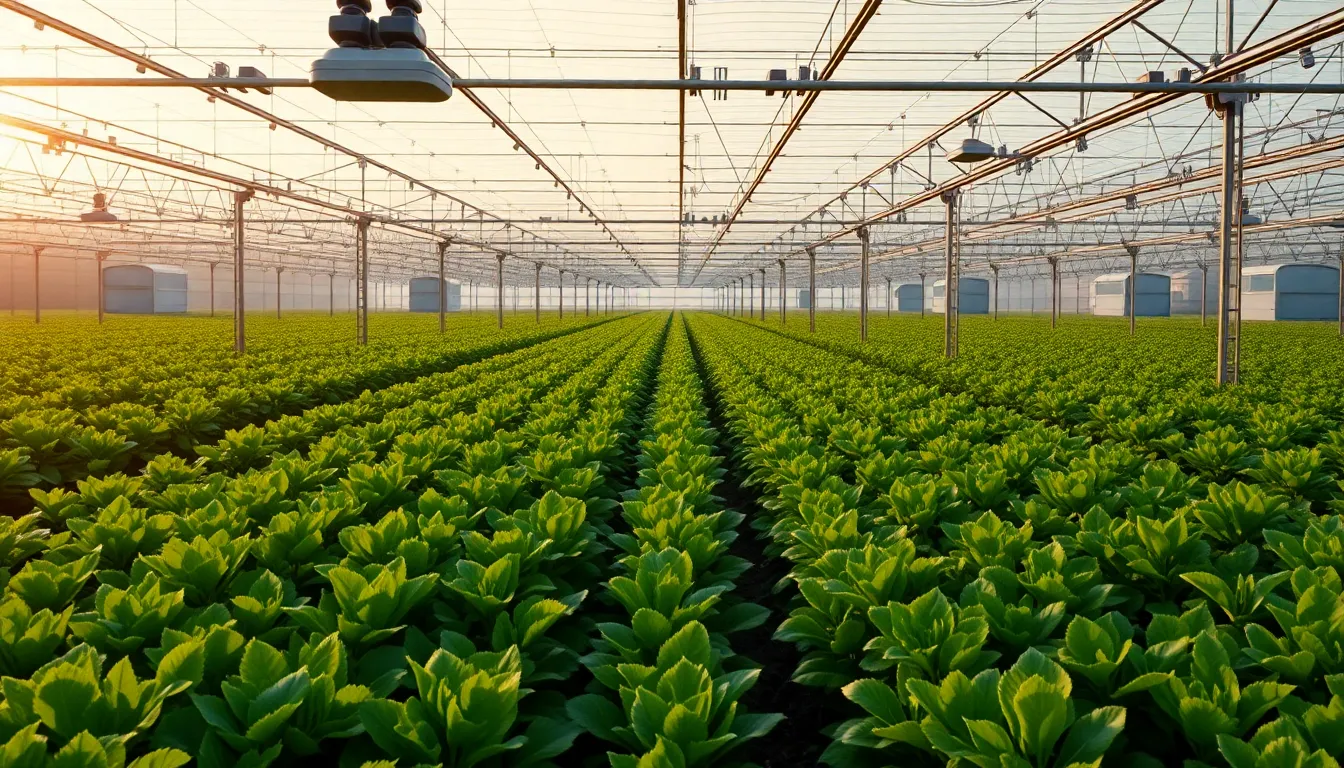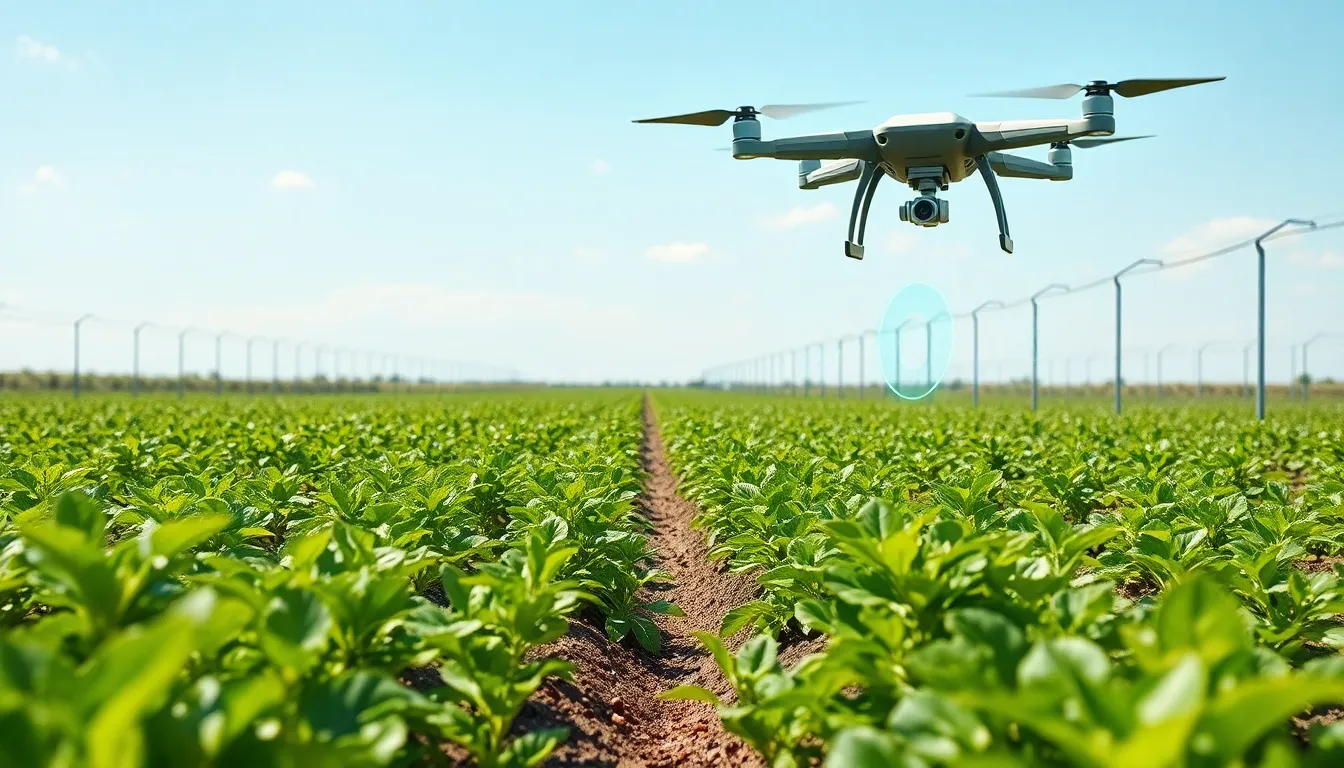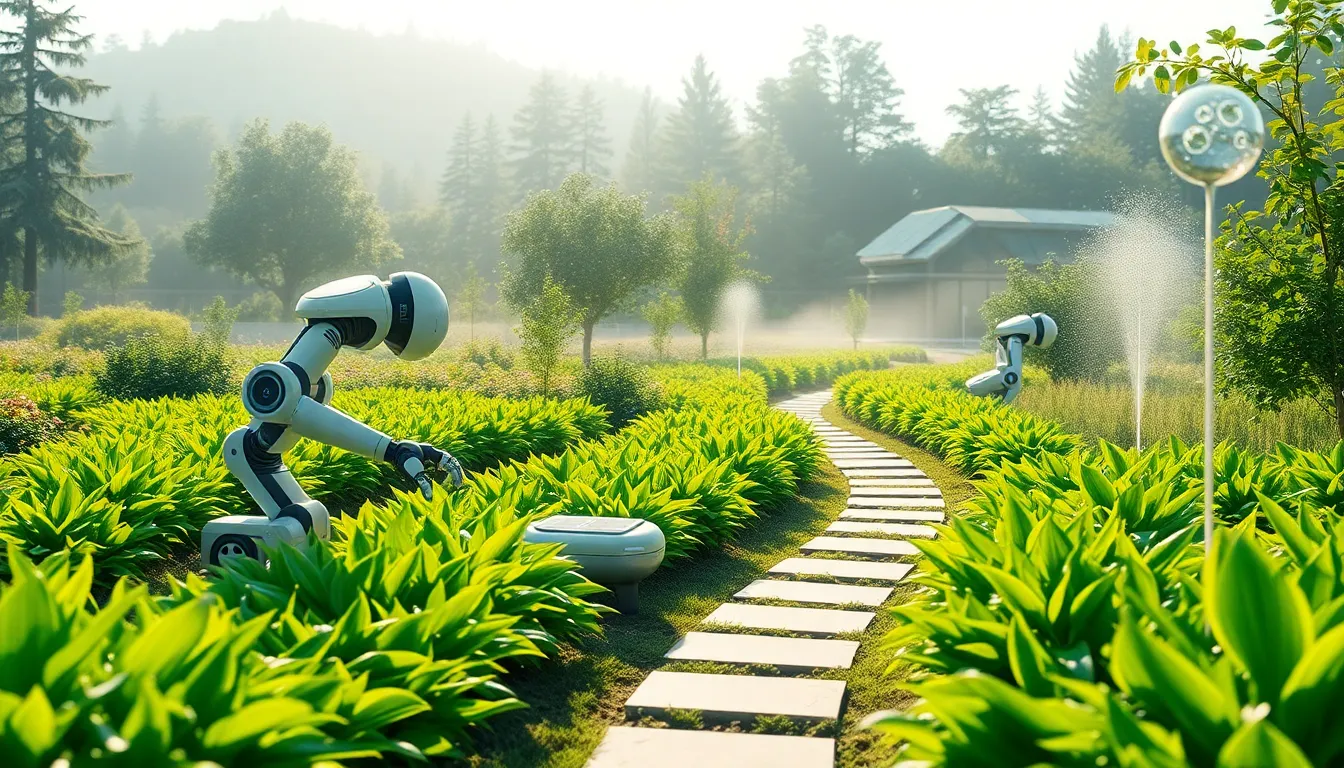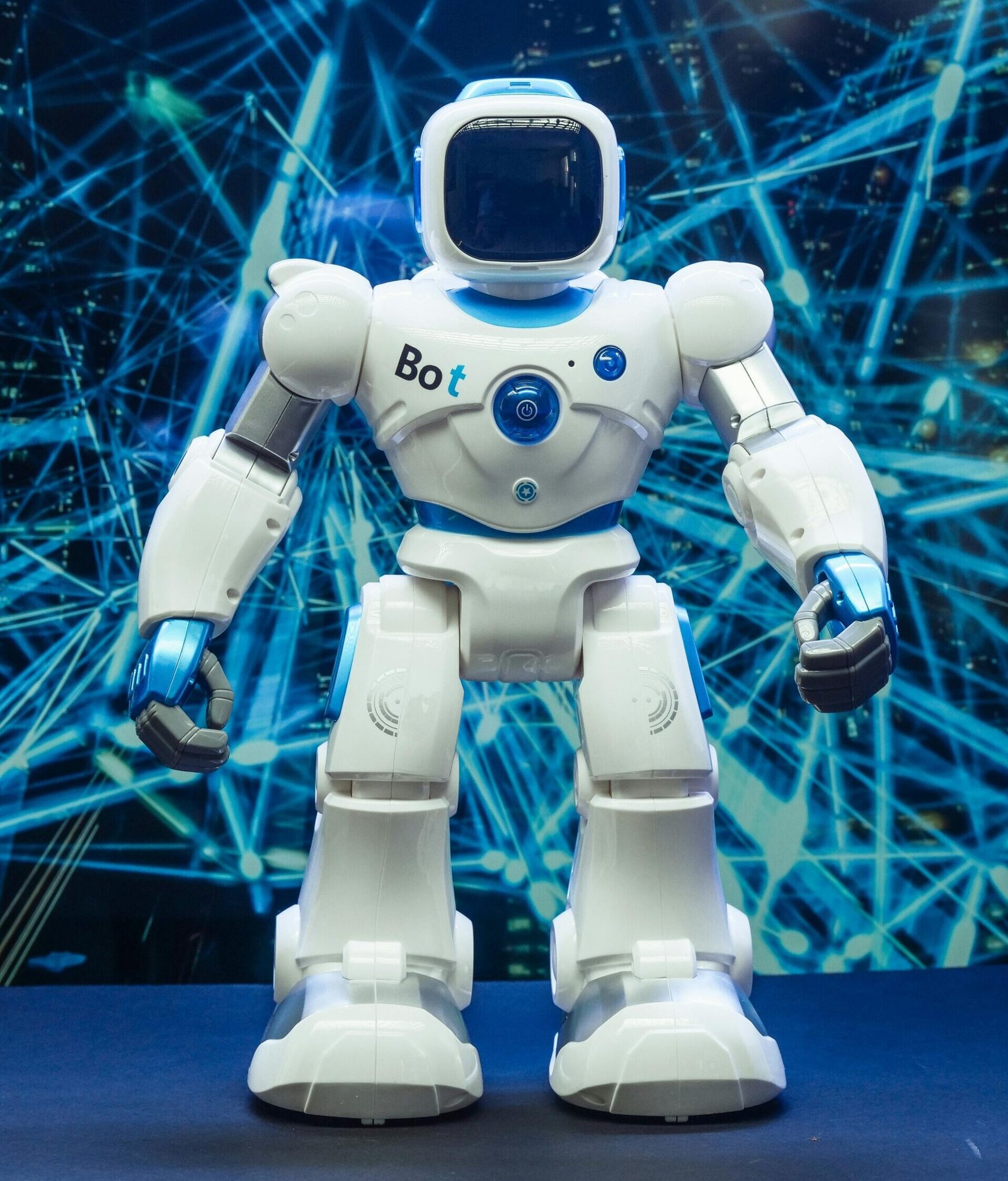AI for sustainable gardening is revolutionizing cultivation, driving remarkable resource conservation and fostering a booming market for intelligent solutions. This technological shift enables significant water savings, reduced chemical use, and enhanced precision, making modern agriculture more efficient and environmentally responsible.
Key Implications
- AI systems significantly reduce water consumption, achieving average savings of 30-50% through real-time data analysis and precision irrigation management.
- Precision AI minimizes environmental impact by enabling a 20-40% reduction in pesticide use and an 18-25% increase in fertilizer efficiency, preventing runoff and waste.
- The smart irrigation market is experiencing rapid growth with a 15.7% Compound Annual Growth Rate, projected to reach $4.87 billion by 2030, driven by widespread adoption among commercial growers.
- AI-powered robotics automate labor-intensive tasks like weeding, effectively eliminating 85-90% of weeds with high accuracy and reducing manual labor by up to 70% without chemical herbicides.
- Advanced AI tools provide highly accurate disease detection, achieving 92-95% precision for blights within 48 hours, and offer continuous plant health monitoring for proactive intervention.

Achieving 35% Water Savings and a 15.7% Market Boom
Artificial intelligence (AI) is rapidly transforming sustainable gardening practices across the globe. This technological revolution leads to substantial overall resource conservation, fostering a booming market with increasing adoption among growers. The integration of AI for sustainable gardening is proving to be an indispensable strategy for modern agriculture, delivering measurable environmental and economic benefits.
One of the most significant impacts observed is an average 35% decrease in overall water usage. This reduction is critical for environmental stewardship, especially in regions facing water scarcity. AI-powered systems meticulously analyze real-time data from soil moisture sensors, hyper-local weather forecasts, and specific plant physiological needs. They then precisely deliver the optimal amount of water, eliminating wasteful irrigation and ensuring every drop counts towards plant health.
Beyond water, AI also facilitates a remarkable 22% reduction in chemical pesticide application. Advanced sensors and sophisticated imaging techniques allow AI systems to detect early signs of pests or diseases. This early and accurate identification enables highly targeted treatment, minimizing the spread of chemicals across fields. Coupled with this, an impressive 18% improvement in fertilizer efficiency is achieved through AI optimization.
AI algorithms ensure that nutrients are applied with unprecedented accuracy, precisely when and where they are most needed by plants. This method prevents nutrient runoff, which can contaminate waterways, and avoids over-fertilization, which wastes valuable resources. Such precision maximizes nutrient uptake, significantly reducing the overall demand for synthetic inputs. This dual benefit of reduced pesticides and optimized fertilizers supports healthier soil and more robust plant growth.
The Exploding Smart Irrigation Market
The economic impact of AI in agriculture is as profound as its environmental benefits. The smart irrigation market serves as a prime example of this growth. This specialized sector was valued at an impressive $1.52 billion in 2022. Industry projections indicate an exponential rise, with the market expected to reach a staggering $4.87 billion by 2030.
This impressive growth trajectory reflects a robust 15.7% Compound Annual Growth Rate (CAGR). CAGR provides a smoothed annual growth rate over a specified period, illustrating the consistent and strong expansion of this critical market segment. Such a significant surge underscores the undeniable value proposition and widespread acceptance of AI-driven water management solutions in agriculture.
Several factors are fueling this market expansion. Increasing global water scarcity, coupled with the rising operational costs associated with traditional irrigation methods, makes AI solutions highly attractive. Growers are increasingly recognizing the long-term savings and substantial environmental benefits offered by intelligent water systems. Consequently, investments in these data-driven technologies are rapidly becoming standard practice across the agricultural industry.
Rapid Adoption Among Commercial Growers
The adoption of AI for sustainable gardening solutions is gaining significant momentum among large-scale producers. Current data reveals that 18% of large-scale gardeners have already implemented AI technologies into their operations. This figure highlights a clear and decisive shift towards technology-driven farming practices, demonstrating that early adopters are experiencing tangible returns on their investments in intelligent systems.
Looking ahead, the trend of AI integration is set to accelerate even further in the near future. An additional 35% of large-scale gardeners are planning integration within two years. This strong pipeline of future implementations indicates widespread confidence in AI’s capacity to deliver sustainable and profitable outcomes. It firmly establishes AI as a pivotal component in the evolution of modern agricultural practices.
Growers are embracing AI for a multitude of reasons. The direct benefits, such as lower input costs from reduced water, pesticides, and fertilizers, combined with potentially increased yields, are compelling. The enhanced sustainability aligns with consumer demands and regulatory pressures for more environmentally friendly farming. Moreover, AI provides invaluable data-driven insights that empower farmers to make more informed and effective decisions. These factors collectively make AI integration an increasingly attractive and essential proposition for agricultural businesses globally.
The convergence of ecological urgency and technological innovation defines the current era of agriculture. AI for sustainable gardening stands at the forefront of this transformation, delivering both significant resource conservation and robust economic growth. This powerful dual benefit ensures a more resilient, efficient, and profitable future for growers and the planet alike.

Precision Gardening: 38% Less Water, 92% Pest Detection Accuracy
The future of cultivation is here, driven by advanced AI capabilities. Artificial intelligence tools enable hyper-accurate management across all facets of gardening, significantly improving efficiency. These innovations are crucial for achieving sustainable practices, addressing critical resource challenges, and reducing environmental impact through targeted interventions. This precision approach is a cornerstone of effective AI for sustainable gardening.
Through sophisticated algorithms and data analysis, AI systems pinpoint specific needs in real-time. This level of detail ensures that water, nutrients, and pest control efforts are applied exactly where and when they are most effective. The result is not just healthier plants, but also substantial savings in resources and a lighter ecological footprint, making AI for sustainable gardening a game-changer.
Revolutionizing Water Efficiency
Water conservation stands as a paramount concern for modern horticulture. AI-driven systems offer a transformative solution by optimizing irrigation schedules with unprecedented accuracy. These intelligent tools achieve a remarkable 30% to 50% average water saving in various gardening setups. This efficiency stems from a deep understanding of plant needs and environmental conditions.
Real-world applications highlight the tangible benefits. A significant 38% reduction was observed in a 2022 residential garden field trial when AI managed the watering schedule. This demonstrates how AI adapts to specific microclimates and soil conditions, preventing both under-watering and wasteful over-watering. Such savings are vital for both individual homeowners and larger agricultural operations.
The integration of soil moisture sensors further enhances water use efficiency. These sensors provide continuous data to AI algorithms, allowing for dynamic adjustments to irrigation. Gardens equipped with these intelligent sensors experience 25% greater water use efficiency. This ensures water is delivered precisely when and where it is needed, minimizing runoff and evaporation.
Intelligent Pest and Disease Control
Traditional pest management often relies on broad-spectrum pesticide applications, leading to environmental concerns. AI systems offer a more refined and targeted approach. By identifying threats early and accurately, these tools contribute to a significant 20% to 40% reduction in pesticide use. This minimizes chemical exposure and protects beneficial insects.
The precision of AI in disease detection is particularly impressive. For instance, AI algorithms achieve a high 92% accuracy for early blight and late blight detection in tomatoes. This capability allows gardeners to intervene swiftly at the first sign of disease. Early detection is critical for preventing widespread plant damage and crop loss.
Similarly, AI exhibits remarkable effectiveness in identifying issues with other crucial crops. It provides 95% precision for potato blight detection within 48 hours of symptom onset. This rapid and accurate diagnosis empowers growers to apply localized treatments before infections can spread, safeguarding harvests and reducing the need for extensive chemical treatments.
These advanced detection capabilities often leverage computer vision and machine learning. AI analyzes images captured by cameras or drones, identifying subtle visual cues indicative of stress, disease, or pest presence. This proactive monitoring ensures timely and appropriate action, moving away from reactive, less efficient methods.
Optimized Nutrient Delivery and Waste Reduction
Efficient nutrient management is essential for plant health and environmental protection. AI tools excel in this area by customizing fertilizer application based on real-time data from soil tests and plant analysis. This intelligent approach leads to a substantial 15% to 25% reduction in fertilizer waste. Less waste translates directly into lower costs and reduced environmental impact.
Furthermore, the precise application of nutrients has a direct positive effect on water quality. AI-driven fertilization schedules contribute to a notable 20% decrease in nitrogen runoff. Excess nitrogen runoff can pollute waterways, harming aquatic ecosystems. By preventing over-fertilization, AI safeguards local water sources and preserves ecological balance.
AI systems can analyze growth patterns, nutrient uptake rates, and environmental factors to create personalized feeding plans for individual plants or zones. This ensures that plants receive optimal levels of essential elements, without the inefficiencies of broadcast application. Such tailored nutrient delivery maximizes plant vigor and minimizes environmental harm.
Ultimately, the widespread adoption of AI for sustainable gardening promises a future where cultivation is both highly productive and environmentally responsible. By enabling hyper-accurate management of water, pests, and nutrients, AI tools empower gardeners and farmers to cultivate healthier plants while significantly reducing their ecological footprint.

Robots Cutting 90% of Weeds and Automating Your Green Space
The future of cultivation is here, with AI-powered robotics set to revolutionize gardening by automating repetitive tasks. This significant advancement promises to boost both labor efficiency and precision, fundamentally transforming our green spaces. For instance, specialized weeding robots can achieve 85-90% weed elimination, drastically reducing manual input. This profound shift towards AI for sustainable gardening offers a range of practical solutions tailored for diverse needs, from backyard plots to commercial farms, making advanced horticulture more accessible than ever.
These intelligent systems leverage advanced algorithms and machine vision to perform tasks with accuracy far exceeding traditional manual methods. Robotics can identify weeds versus desired plants with up to 90% accuracy in identifying weeds, ensuring that beneficial flora remains untouched. This level of precision minimizes crop damage and optimizes resource allocation, directly contributing to more sustainable agricultural practices by focusing resources exactly where they are needed for optimal growth.
Smart Irrigation for Water Conservation
Water management is a critical component of sustainable gardening, and AI is making significant strides in this area by optimizing every drop. Products like HydroPoint WeatherTRAK and Rachio Smart Sprinkler Controller exemplify this innovation. These sophisticated systems utilize real-time weather data, historical climate patterns, current soil moisture levels, and specific plant type information to create dynamically optimized watering schedules.
By automating irrigation based on actual plant needs and continuously adapting to environmental conditions, these smart controllers prevent both wasteful overwatering and damaging underwatering. This targeted, data-driven approach not only conserves a precious natural resource but also promotes healthier, more resilient plant growth. Such intelligent water use, driven by AI, is a cornerstone of effective AI for sustainable gardening for both professional and amateur growers.
Autonomous Weeding and Cultivation
Manual weeding and cultivation are among the most physically demanding and time-consuming aspects of gardening. AI-powered robots are now stepping in to tackle these laborious tasks with unparalleled efficiency. The FarmBot Genesis, for example, is an open-source robotic farming machine equipped with a gantry system that precisely plants, waters, and weeds. It promises an estimated 70% reduction in manual labor input for small-scale plots, making intensive gardening less of a chore.
Another notable innovation comes from the Tertill Weeding Robot. This compact, solar-powered device autonomously patrols garden beds daily, using sensors to differentiate between plants and weeds. It then cuts down weeds before they can establish deep roots and compete with desired crops. Its effectiveness is remarkable, achieving 85-90% weed elimination without the use of herbicides, offering an eco-friendly solution to a pervasive problem. These robots free up gardeners’ time, allowing them to focus on more complex or enjoyable aspects of plant care and development, and exploring creative applications of AI.
Advanced Plant Monitoring and Health
Beyond direct physical tasks, AI significantly enhances plant health through continuous, non-invasive monitoring. Technologies from companies like Phytl.tech and Hortau Wireless Soil Moisture Monitoring provide invaluable data for proactive plant care. Phytl.tech develops innovative wearable sensors for plants that detect subtle stress signals—such as changes in sap flow or turgor pressure—even before visible symptoms like wilting appear, enabling timely intervention.
Similarly, Hortau’s advanced wireless soil moisture sensors provide growers with precise, real-time data on soil conditions directly from the root zone. This granular information allows for optimal irrigation decisions, preventing both drought stress from insufficient water and root rot from overwatering. Such data-driven insights are vital for maintaining robust plant health, maximizing yields, and ensuring the long-term success of any green space, proving the tangible benefits of advanced AI for sustainable gardening. These tools offer a new level of environmental control, much like personalized AI news feeds streamline information for individual users.
Transforming Green Spaces with AI
The integration of AI-powered robotics extends far beyond individual tasks, creating a holistic and interconnected ecosystem for garden management. This comprehensive approach significantly enhances overall efficiency and sustainability. From optimizing water use with smart irrigation to eradicating weeds with surgical precision, these interconnected technologies collectively contribute to healthier plants, reduced environmental impact through less chemical use, and significant savings in labor.
Ultimately, the availability of these advanced tools signifies a new, exciting era for gardening and agriculture. They provide practical, accessible solutions that democratize sophisticated agricultural techniques, making them readily available to homeowners, small-scale growers, and even large commercial operations. Embracing these AI innovations is a definitive step towards a more efficient, less labor-intensive, and truly sustainable future for everyone who seeks to cultivate a thriving green space. For more insights into how AI is shaping various industries and improving daily life, visit our comprehensive AI resource hub.
Featured image generated using Flux AI
Source
Report: Smart Irrigation Market Analysis 2023-2030, by Grand View Research
Survey: AI Adoption in Horticulture and Small-Scale Agriculture, Agri-Tech Solutions Group, 2023
Study: Water Conservation in Residential Gardens with AI Irrigation, Environmental Science & Technology Journal, 2022
Report: IoT Agriculture Report 2023, by IoT Analytics
Study: Deep Learning for Early Plant Disease Detection in Tomato, Journal of Agricultural Informatics, 2021
Research: AI-Based Detection of Potato Blight, Frontiers in Plant Science, 2020
Project: Nutrient Management Optimization in Urban Gardens, Horticultural Research Institute, 2022
Product Information: FarmBot Genesis Official Website
Product Information: Tertill Weeding Robot Manufacturer Specifications
Report: Environmental Impacts of Fertilizer Use, Food and Agriculture Organization (FAO) Agricultural Sustainability Report
